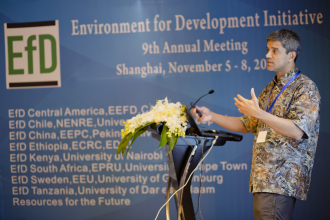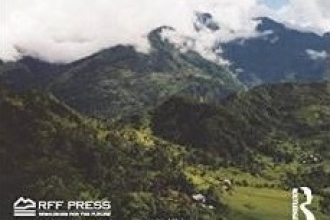One-child policy in China
The objectives of this field study are: (1) to implement a set of experiments to investigate the effect of the one-child policy on; (2) to collect data of peoples’ back-ground and in particular if
The objectives of this field study are: (1) to implement a set of experiments to investigate the effect of the one-child policy on; (2) to collect data of peoples’ back-ground and in particular if

EfD, the Environment for Development Initiative, has become a leading global network for economists working on environment in developing countries with centers in Central America, Chile, China…
Many cities worldwide have considered vehicle restriction policies to curb proliferating problems related to traffic and pollution.
At the beginning of 2011, Beijing became the first city to allocate vehicle license plates using a lottery. We provide a background on Beijing׳s lottery and analyze its short-term effects. We find that growth in new vehicle registrations has been sharply curtailed. However, this policy may not reduce fuel consumption as much as expected.
Access related discussion paper here.
Shale gas development in China can generate great potential economic benefits, but also poses serious environmental risks. In this paper, we offer a macro assessment of the environmental risks of shale gas development in China.
In this paper, we use the US shale gas experience to shed light on how China might overcome the innovation problem inherent in exploring and developing shale gas plays with complex geology.
Energy Policy is an international peer-reviewed journal addressing the policy implications of energy supply and use from their economic, social, planning and environmental aspects.

"This very readable book on Forest Tenure Reform in Asia and Africa looks at different countries’ strategies to use tenure innovations to manage forest resources. An especially interesting…
Forest tenure reforms are occurring in many developing countries around the world. These reforms typically include devolution of forest lands to local people and communities, which has attracted a great deal of attention and interest. While the nature and level of devolution vary by country, all have potentially important implications for resource allocation, local ecosystem services, livelihoods and climate change.
A driving restriction policy, as one of the control-and-command rationing measures, is a politically acceptable policy tool to address traffic congestion and air pollution in some countries and cities in the world. Beijing is the first city in China to implement this policy.